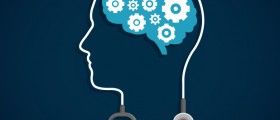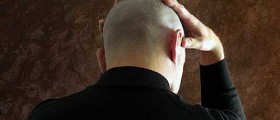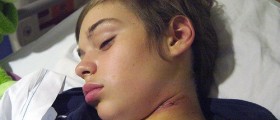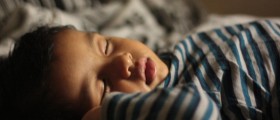Some people just can't stop laughing, or they experience laughing fits at very inappropriate times. The problem usually isn't that they are crazy. The problem usually is of a physical nature, though psychological reasons can also sometimes explain compulsive laughter.

Here are just a few of the over 15 conditions that can cause inappropriate or uncontrollable laughter.
- Pseudobulbar affect disorder can cause uncontrollable laughter or tears without warning. The episodes can last for up to several minutes, and occur several times a day. The condition usually follows a brain injury, brain tumors, or brain infections. It is distinguished from depression or a kind of schizophrenia called hebrephrenia by its suddenness. These episodes come on without warning and without any particular relationship to what's going on in the world of the person who has the condition. There are drug treatments for pseudobulbar affect disorder.
- Dementia, Alzheimer's disease, and multiple sclerosis can also be accompanied by pseudobulbar affect disorder. A relatively new treatment called Nuedexta, which is a combination of a medicine usually prescribed to control coughing called dextromethoraphan plus quinidine so it is better absorbed, helps to control symptoms after 30 to 90 days.
- Social anxiety disorders can also result in inappropriate laughter as a result of fears of social interaction. Usually this nervous kind of laughter is clearly not directed at anyone or anything. It's more like punctuation, as in "Good morning, ha-ha., How are you, ha-ha." When the condition causes embarrassment, it gets worse, and causes still more embarrassment. The condition can usually successfully be treated with antidepressants in combination with psychotherapy.
- Tourette syndrome and other tic disorders can cause outbursts of laughter at inappropriate times, although these disorders usually also cause either uncontrollable facial and other movements and inappropriate speech. Tourette syndrome may be treated with medications, but since they are not a long term solution as they only temporarily repress tics, it is more ideal for the environment to simply adapt to the symptoms.
- Post-traumatic stress disorders can cause outbursts of laughter, among many other symptoms. As in people with other anxiety disorders, the laughter would be a means to cope with stress in these cases, particularly related to traumatic experiences.
- HIV encephalopathy and AIDS dementia complex can be characterized by uncontrollable outbursts of laughter.
- Premenstrual dysphoric disorder, an extreme form of premenstrual tension in women of reproductive age, sometimes results in uncontrollable outbursts of laughter.
- Angelman syndrome is a genetic condition that causes challenges in mental development like those in Down syndrome, although people who have the condition are excessively cheerful. They may experience uncontrollable laughter, too.
- Bipolar affective disorder can cause fits of laughter in the manic phase.
- Phobias can provoke laughing fits as a means of dealing with fear.
- Complex partial seizures and gelastic epilepsy can result in unusual displays of intense emotion without loss of control of muscle function.
- Brain tumors anywhere in the brain can cause emotional outbursts seemingly unrelated to conditions around the person.
- Amyotrophic lateral sclerosis (ALS, also known as motor neurone disease in the UK and Commonwealth) can result in outbursts of inappropriate emotions, including laughter.
- A rare hereditary enzyme defect called phenol sulfotransferase deficiency can cause a build up of toxic chemicals in the nervous system that leads to aggressive behavior, redness in the face, circles under the eyes, and fits of laughter, among other problems.
- Lack of an enzyme for the conversion of folic acid into its active form called tetrahydromethylfolate reductase can result in a variety of problems, including fits of inappropriate emotion.
- Vitamin B12 deficiencies sometimes cause this symptom as well.
In addition to all these physical causes of laughing fits, some people just have an "off" sense of humor. This is more of a psychological issue, however, and it's not something that seems to take over the person's abilities of self-expression.
Most of the time, uncontrollable laughing fits can be matched to a physical disorder that can be treated with medication. Self-help and natural healing methods tend not to be particularly successful, unfortunately, because the problem is focused in the brain or in an enzyme system, not in the wellbeing of the body as a whole. Marijuana has been tested as a potential remedy for some of the conditions that cause uncontrollable laughter, but it does not get consistent results. All of the prescription treatments for these conditions have at least a few side effects, and none of them work 100 percent of the time. In most cases, however, symptom improvement is possible after 30 to 90 days of consistently taking prescribed medicine.
- Pellock JM. Treatment of seizures and epilepsy in children and adolescents. Neurology. 1998. 51(5 Suppl 4):S8-14
- Photo courtesy of SteadyHealth
















